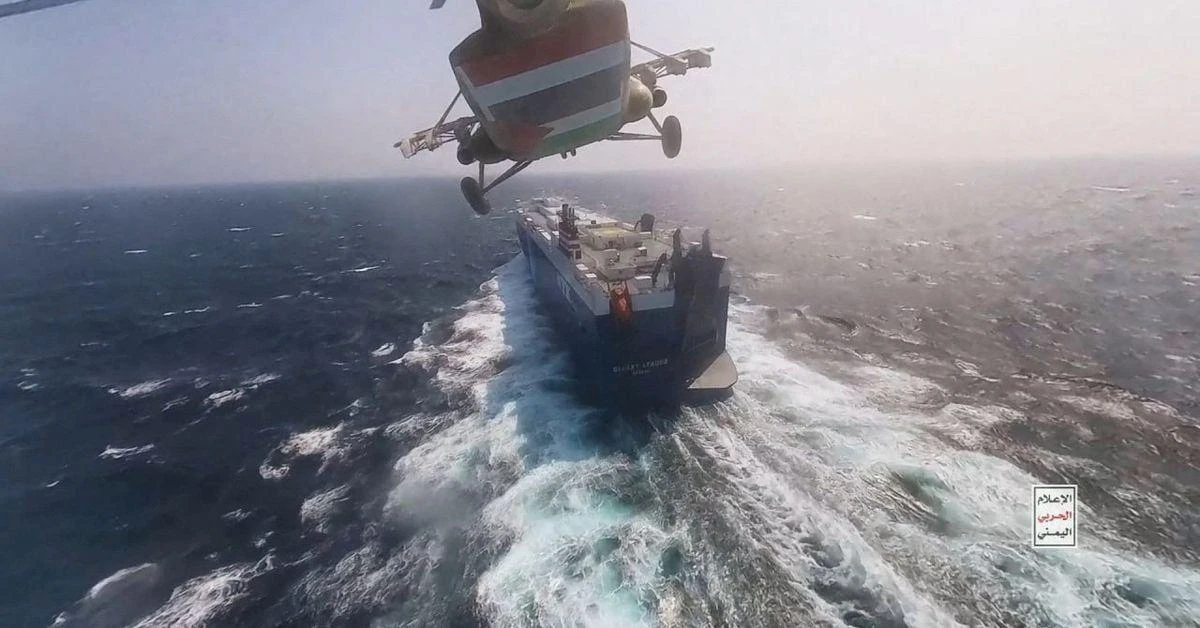Red Sea, one of world’s busiest maritime trade routes, is turning into battlefield

The world’s largest shipping companies continue to halt shipments via the Red Sea following assaults by Houthi rebels along the key international trade path.
Cargo vessels are being redirected around the Cape of Good Hope, on the southern tip of Africa. However, this has led to longer travel times and significantly higher shipping expenses, from Asia to Europe. This may create a greater impetus for global inflation.
What is happening in the Red Sea?
There has been a notable increase in aggression by Iran-backed Houthi rebels from Yemen against commercial ships in the Bab el-Mandeb strait. This escalation began in late November and has intensified, particularly in response to Israel’s actions in Gaza.
Recent attacks have seen heightened activity, prompting the use of US Navy warship helicopters to fend off a militant assault on a vessel belonging to Maersk in late December. Consequently, the Danish shipping company opted to suspend all cargo transit in the area, indefinitely.
Hapag-Lloyd, a German shipping company, has announced its decision to continue avoiding the route affected by the conflicts in the Red Sea. This route holds significant importance as a crucial pathway for global trade, connecting Asia to Europe through the Suez Canal and the Mediterranean.
How significant is the Red Sea trade route?
The Suez Canal handles about 12% of global trade and is accessed by vessels traveling from Asia via the 30 kilometers wide Bab el-Mandeb strait. About half of freight shipped through the canal is made up of containerized goods. The route also provides a vital passage for shipments of oil from the Persian Gulf to Europe and North America.
Rerouting shipments around the Cape of Good Hope adds about 6,000 kilometers to journeys connecting Europe with Asia, adding about 10 days to the duration of the trip, according to the Dutch bank ING.
With the prospect of lengthier shipping times, there could be a knock-on impact for turnaround times at ports in the UK and large European hubs such as Rotterdam, Antwerp and Hamburg.



